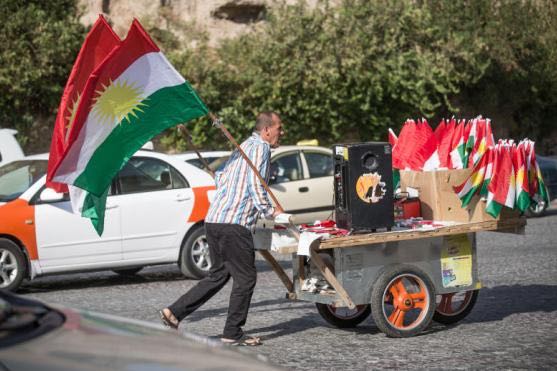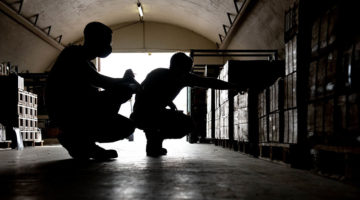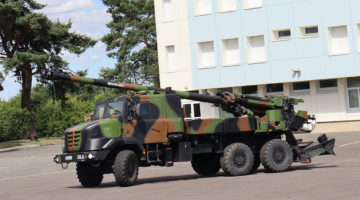In a new report by Dr. Amatzia Baram published by the Geopolitical Information Service, the question of the emergence and impact of an independent Iraqi Kurdistan is the focus of attention.
The war with ISIS has given Iraqi Kurdistan the opportunity to demonstrate its strength, order and cohesiveness.
What the Kurds have achieved in Iraq is permanent.
Iraqi Kurdistan will never again be subservient to Baghdad.
This leaves not only Iraq, but the government of Turkey concerned about what a new Kurdish political entity might mean.
According to an overview on the report published on World Review:
2015 could witness the birth of a globally recognised and economically independent Iraqi Kurdistan, writes Professor Dr Amatzia Baram.
This would see Kurdistan as the first of the Middle East countries to redraw the Middle East map since the 1916 Sykes-Picot agreement and the League of Nations mandate in the early 1920s.
Iraqi Kurdistan, with its multiethnic population of mainly Muslims but also Yazidis, the Yarsan and Christians, functions as a state in all but name – despite facing terror from ISIS and political pressure from Baghdad.
The Iraqi Kurds now have the support of the United States, and the Kurdish fighting force – the pershmurga – have come into their own. Kurdistan has what looks like a stable regional government and an active, well-financed economy.
But Turkish leaders, particularly, are increasingly uncertain over how to deal with the Kurdish issue. Ankara’s relationship with the Kurdish Regional Government (KRG) in Iraq, while essentially good, has become more complex than before.
Kurdistan is also close to countries hostile to its ambitions – and an independent Kurdistan could shake the foundations of the Middle East.
But 2014 was a year of transition – when the relentless onslaught of ISIS put the autonomous Kurdish region in northern Iraq close to annihilation.
By mid-December, 2014, the Kurds had pushed ISIS out of the region and broke a months-old ISIS siege and campaign of genocidal slaughter of the Yazidis community. This was Kurdistan’s most visible symbol in 2014 of the fightback.
Mosul – Iraq’s second biggest city – remains in ISIS hands as does Tikrit.
The peshmerga’s impressive military achievement could not have happened without US air-to-ground support and a US and French injection of weapons to the Kurds.
By late December 2014 the Kurds were close to securing a stretch of land south of the Turkish border connecting the Kurdish region in Iraq with Kurdish territories on the Syrian side of the border.
While this is still a very far cry from a mega-Kurdish state which would unite all the Kurds of Iraq, Iran, Turkey and Syria, this is still a meaningful strategic gain for the Kurds of Iraq.
This comes on top of another major Kurdish achievement: keeping ISIS out of the oil-rich city of Kirkuk.
The military victory over ISIS and the crash of world oil prices are providing the Kurds with unprecedented strength in their negotiations with Baghdad.
In December 2014, Baghdad agreed to allow the Kurds to export oil daily from Kirkuk and the KRG territory through a new 280km (174 mile) KRG-Mediterranean pipeline. This has given the Kurds, for the first time, a legal direct outlet to global markets. Baghdad also agreed to resume payments of oil revenues to the KRG which it had stopped in April 2014.
In addition Baghdad agreed to pay US$1 billion annually for pershmerga expenses, another important pre-ISIS demand.
Another Kurdish demand – ongoing since 2003 – to include oil-rich Kirkuk in to the KRG, is closer to fulfillment.
The Kurds of Iraq have managed not only to keep afloat but also to make important inroads in their international relations.
The fear that the Kurds would be routed by ISIS forced the US to intervene militarily on their side.
While the US is still unsure whether the Shia-led government of Baghdad is willing and capable of reaching a de-centralization agreement with the Sunnis and detaching itself to some extent from Tehran, Washington believes that the Kurds are allies and trusts them more than they trust Baghdad.
Relations with Turkey have remained strong. The KRG is careful not to antagonise Ankara and Ankara responds in kind.
Both the Kurds and the Turks are interested in the continuous flow of oil. At a time when world oil prices are plummeting Erbil, Ankara and Baghdad are keen on seeing as much KRG and Kirkuk oil going to the world markets.
Kurdish-Iranian relations, too, are good. By sending Iranian troops into Kurdistan to help fight ISIS, Iran gained meaningful influence in the KRG.
The battle in and around the strategically located town of Kobane which raged from September 2014 onwards, and which is now slowly developing in favour of the Kurds, aroused admiration among the Iraqi Kurds for the Syrian Kurds. However, political relations between the two Kurdish communities are uneasy.
As a result of the ISIS offensive negotiations between the Kurds and the new Baghdad central government have become more productive than before. It may be said that the presence of ISIS has been a major benefit to the KRG.
Fulfillment of the Kurdish dream of independence seems distant but a partnership with a weakened Baghdad however looks promising.
For the report, please go to the following link:












